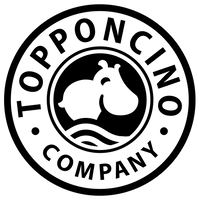Montessori Language Development: Guiding Your Child on the Path to Effective Communication

Language development is a fundamental aspect of a child's growth, and the Montessori method offers a comprehensive approach to fostering this essential skill. By engaging children in stimulating activities and creating a supportive environment, Montessori principles help facilitate effective communication and a strong foundation for academic success. In this article, we'll delve into the Montessori approach to language development, providing you with practical strategies and insights on how to support your child's communication journey from infancy to the preschool years.
We will begin by discussing the various phases of Montessori language development and the importance of each stage in building a solid linguistic foundation. Next, we'll explore different materials and techniques employed in Montessori classrooms and provide suggestions on how to adapt and implement these approaches in your home. We will also address the important role that parents and caregivers play in a child's language development journey, offering guidelines for supporting and nurturing communication skills through everyday interactions.
1. An Overview of Montessori Language Development Stages
Montessori language development is typically divided into three main stages, each focusing on specific developmental milestones and learning strategies:
A. Pre-Linguistic Stage (birth to 18 months): This stage emphasizes the importance of creating a rich sensory environment that nurtures your child's innate curiosity and lays the groundwork for language acquisition.
B.Linguistic Stage (18 months to 3 years): At this stage, children begin to develop a more extensive vocabulary and demonstrate an increasing understanding of sentence structures and grammar.
C.Reading and Writing Stage (3-6 years): In this stage, Montessori educators introduce children to phonetic sounds, letter recognition, writing, and reading, fostering a strong foundation for literacy skills.
2. Montessori Materials and Techniques for Language Development
The Montessori approach employs specific materials and techniques designed to support and enhance language development:
A. Sandpaper Letters: These tactile materials allow children to trace the shape of each letter while simultaneously learning its phonetic sound, reinforcing the association between the letter's symbol and the sound it represents.
B. Movable Alphabet: The Movable Alphabet is a set of individual letters used to support children's early attempts at writing, encouraging them to combine letters into words and sentences without the need for perfect penmanship.
C. Metal Insets: These geometric shapes help children refine their fine motor skills, preparing them for the act of writing by practicing hand control and pencil grasp.
D. Storytelling, Rhymes, and Songs: Montessori classrooms use oral storytelling, rhymes, and songs as a means of promoting language development, vocabulary enhancement, and listening skills.
3. Adapting Montessori Language Activities for Home Use
You can incorporate Montessori language development activities into your home environment to support your child's learning and growth:
A. Create a Print-Rich Environment: Surround your child with labels, books, and materials that display written language, exposing them to written words and fostering a love of reading.
B. Engage in Conversation: Encourage language development by actively engaging your child in conversation, asking open-ended questions, and providing ample opportunities for them to express their thoughts and feelings.
C. Utilize Montessori Materials: Incorporate Montessori language materials such as sandpaper letters and the movable alphabet into your child's daily routine, allowing them to practice letter recognition and phonetic sounds.
D. Provide Age-Appropriate Reading Materials: Offer a diverse selection of books tailored to your child's interests and reading level, encouraging independent reading and a love of literature.
4. The Role of Parents and Caregivers in Language Development
Parents and caregivers play a pivotal role in a child's language development journey. Here are some guidelines for supporting and nurturing communication skills:
A. Model Clear and Articulate Speech: Speak to your child using clear, concise language, and enunciate each word to ensure they understand the correct pronunciation and grammar.
B. Listen Actively: Show genuine interest in your child's thoughts, ideas, and experiences, fostering a supportive environment that encourages them to communicate openly and confidently.
C. Read Aloud Daily: Share stories, poems, and informational texts with your child, discussing the content and connecting it to their own experiences and prior knowledge.
D. Encourage Storytelling: Invite your child to create and share their own stories, enhancing their imagination, vocabulary, and narrative abilities.
5. Cultivating a Love of Reading and Storytelling
Developing a passion for reading and storytelling is essential in fostering lifelong language and literacy skills:
A. Library Visits: Regular visits to the local library expose your child to a wide range of reading materials and cultivate a love of literature.
B. Audiobooks: Introduce your child to the world of audiobooks, offering engaging narrations that can inspire their imagination and listening skills.
C. Creative Writing Opportunities: Encourage self-expression by providing opportunities for your child to practice creative writing, such as journaling, story creation, or letter writing.












